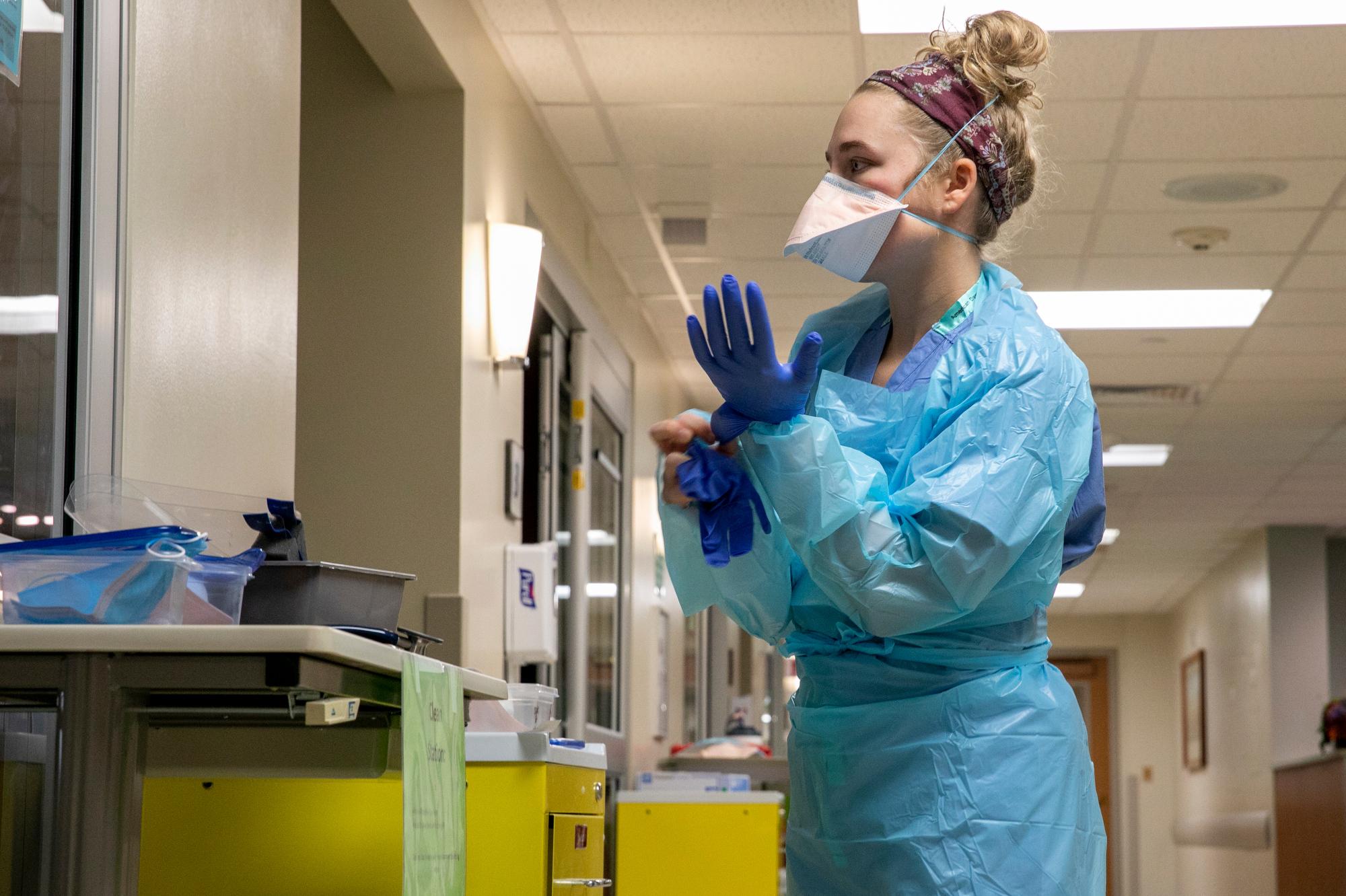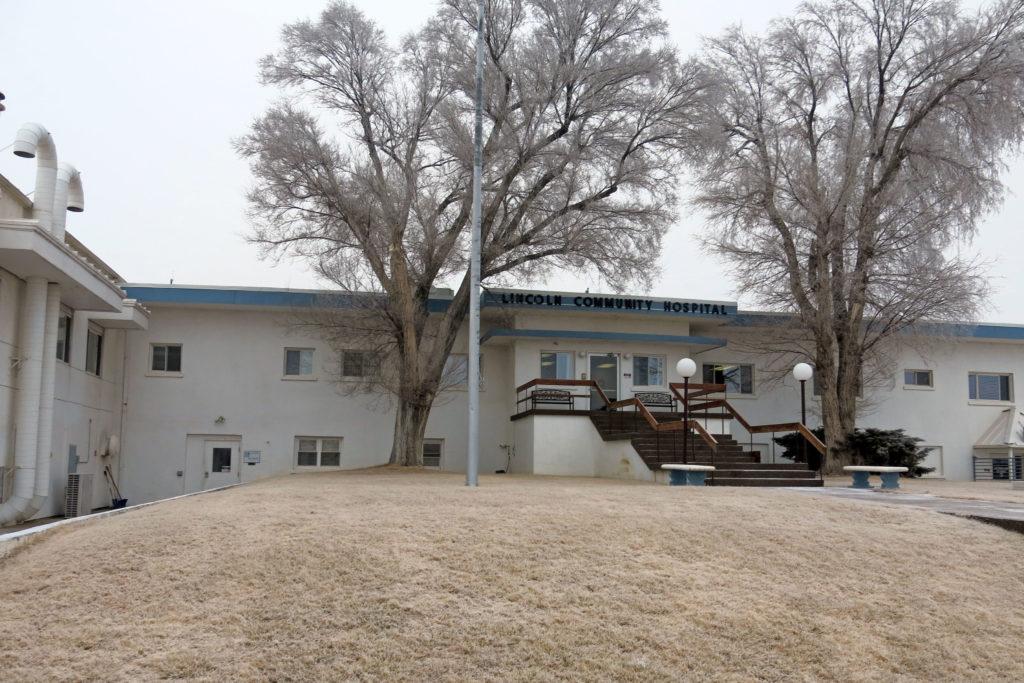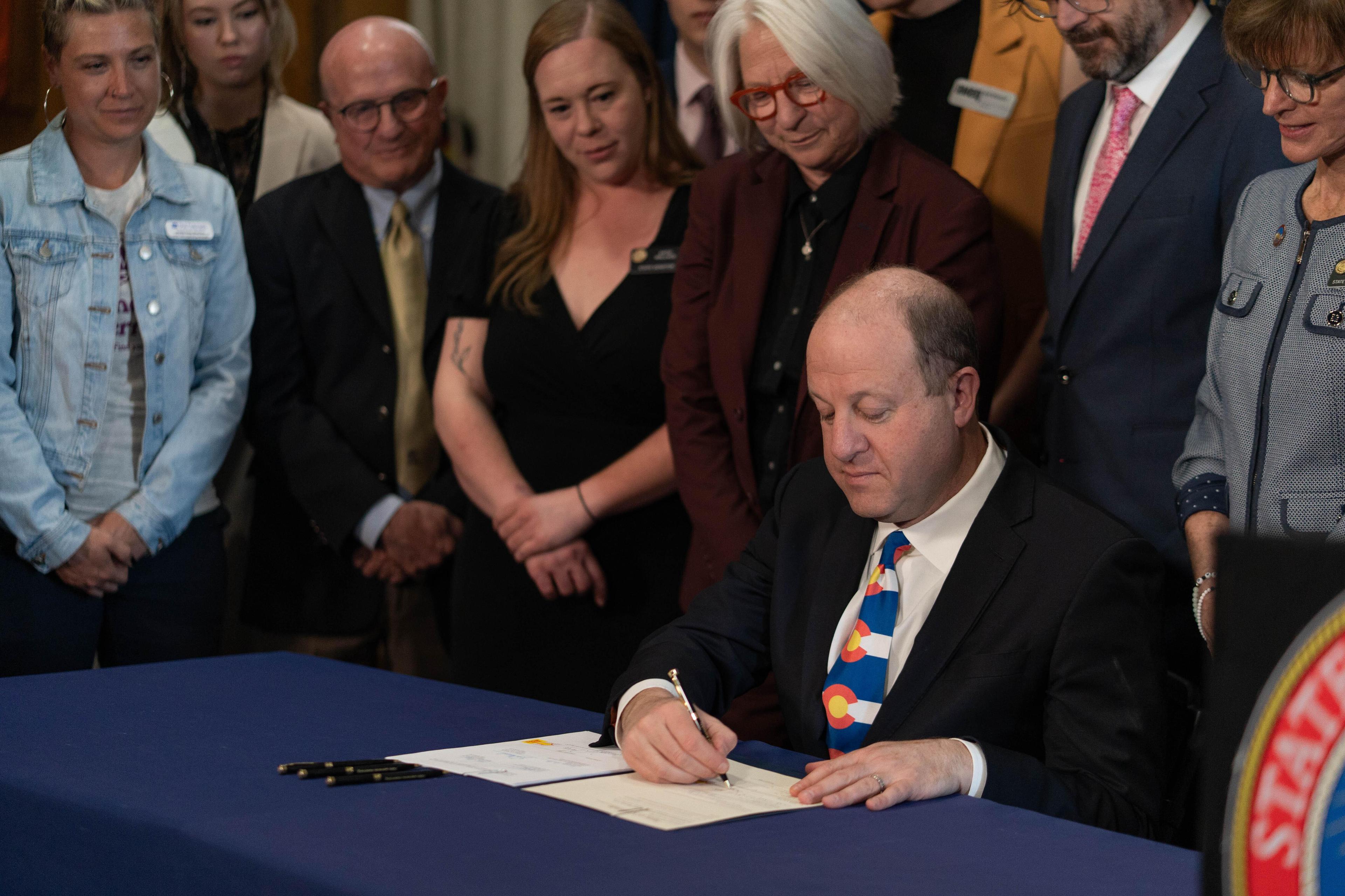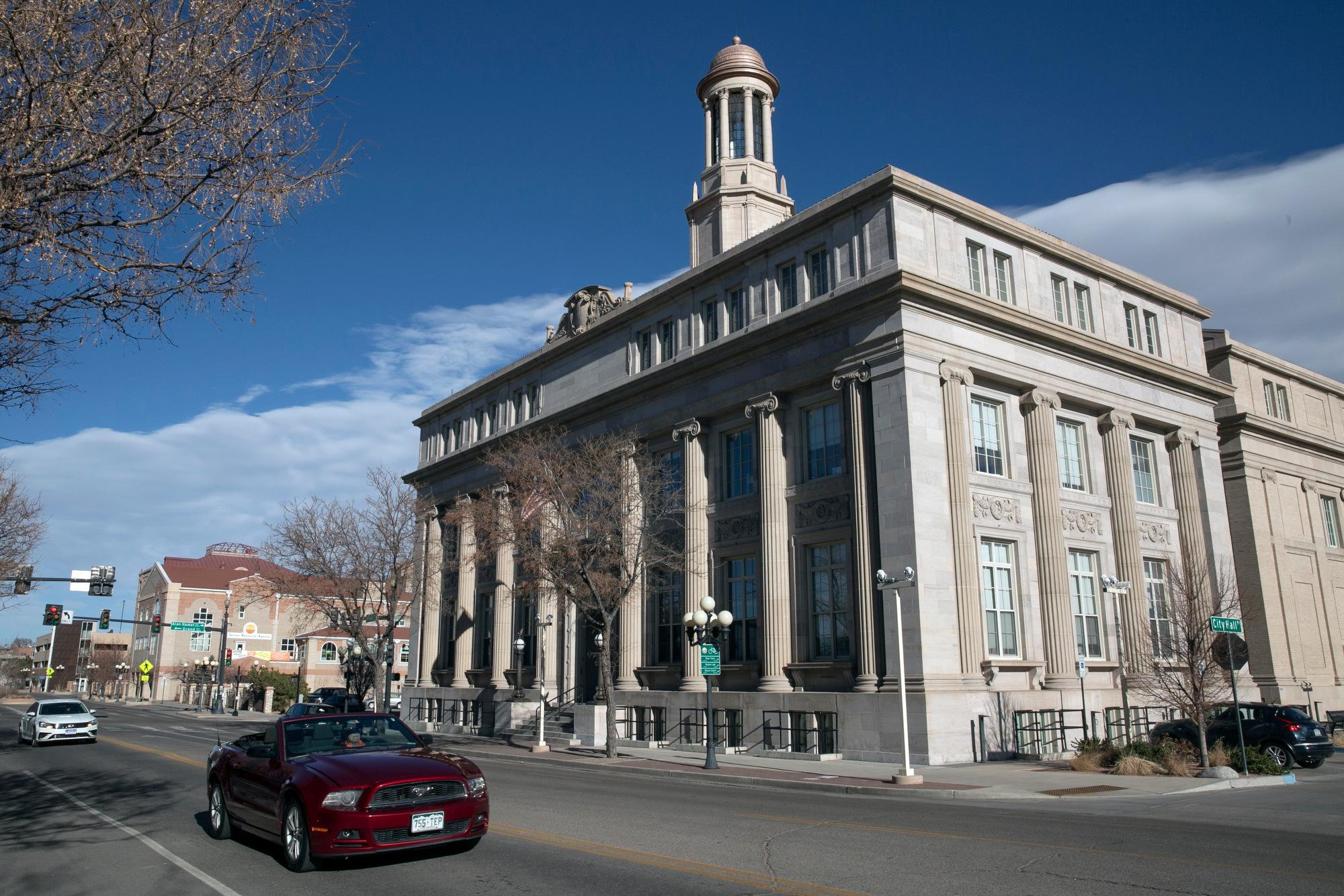
Many Colorado hospitals are busier than they have been at any point since the pandemic began.
In response, they are shuffling patients between units to try to get the sickest patients into ICU beds and delaying some surgeries that aren’t urgent. Hospitals that are especially full have to look to other facilities to find beds for certain patients.
Yet, experts say it’s not unusual for hospitals to be busy as winter and respiratory viruses typically set in. Though they also see signs that this year is different, and the next few weeks of the pandemic could push things far beyond normal.
“With the growth that Colorado has seen in the last, say five to eight years, especially along the Front Range, we’ve had many hospitals that were at 100 percent occupancy during a good chunk of the year,” said Julie Lonborg, spokeswoman for the Colorado Hospital Association, referring to each year during that time frame.
That’s why even outside a pandemic, it’s routine to transfer patients to another hospital or hold a person in an emergency room until an appropriate bed opens up somewhere else.
“The reality is hospitals in the United States are kind of designed to run at really high capacities,” said Dr. Connie Savor Price, chief medical officer at Denver Health. “So some of what you're seeing is just how hospitals normally function.”
But more of Colorado’s hospitals are hitting their regular capacity limits more often right now.
“We have hospitals, especially in some of the more rural or more remote areas that are not generally full, that are absolutely full right now,” Lonborg said.
The lifelines that those rural hospitals normally have in Denver are also problematic right now. Hospitals in the mountains typically send very sick patients to the capital city for treatment, but because of the pandemic, that’s taking longer than usual.
“Typically there's no problem just shipping anyone who needs Denver's level of care down the hill,” said Dr. Dylan Luyten, an emergency room physician who works two days a month at St. Vincent Hospital in Leadville. “What used to be a five-minute phone call can turn into a two-hour series of phone calls as we look around the system for a bed.”
Bed space isn’t the only concern. On Colorado’s Eastern Plains, in the small town of Hugo, the hospital faces a staff shortage. At the start of this week, Lincoln Community Hospital, which is licensed for 15 beds, had 12 patients, including 10 with COVID-19. It typically has a staff of about 30.

“Right now we have about a dozen staff people that are out because they tested positive with COVID,” said the hospital’s CEO Kevin Stansbury. “Thankfully none of them are seriously ill, but that certainly affects our ability to care for our patients.”
Staff shortages at hospitals across Colorado is another problem.
Hospitals of all sizes in Colorado face that same issue: They have staff who are out with the virus or are quarantining because they were exposed to someone who has it. In a state survey that more than 90 percent of hospitals responded to, more than a third say they expect staffing shortages in the next week.
Some hospital staff who can come to work say they are worn out because of the large number of patients they’re treating. They also find themselves offering more emotional support to patients than usual because COVID-19 rules prohibit most families from visiting the hospital. Over the course of an entire year, that takes a toll.
Even when hospitals do hit capacity, though, they can create space just a few hours later. There are other reasons for hope, too.
Doctors know a lot more about what to expect from and how to treat COVID-19 patients compared to what they knew at the beginning of the pandemic.
“It feels completely different from the spring when there was a tremendous amount of uncertainty and fear,” said Dr. Luyten, the emergency room doctor.
That can mean shorter hospital stays. Luyten said there’s also less of a concern about having enough personal protective equipment, or PPE, for doctors, and while a shortage of ventilators was a concern early on, the state has more now and is using them less with COVID-19 patients thanks to advances in understanding the virus.
“I think there's a sense of relative calm and confidence,” said Dr. Luyten.
One piece of good news — Colorado is seeing a lighter flu season.
Another thing taking some pressure off hospitals is that it has been a light flu season so far, said Karen Labonte, the chief nursing officer for Southwest Health Systems in Cortez.
“The interesting thing that I've noticed with this season, and I think a lot of it's because most people are masked now, is the decrease in the flu admission,” said Labonte, adding that typically, “This time of the year we see a lot more flu patients coming in that are sick and we see a lot more children [with respiratory conditions].”
Polis has also implemented new rules to make it easier for a busy hospital to transfer patients elsewhere and to allow for medical staff to be certified more quickly for other duties.
But that likely won’t be enough to offset the massive numbers of patients who will need care if the worst statewide projections come true.
In November, Polis said state models showed that if nothing changed, the total number of deaths from COVID-19 could double from that time to the end of this month.
“It's quite clear in the numbers and in the trends we're seeing in the community that the hospitals have not peaked yet,” said Denver Health’s Dr. Savor Price. “And that's what scares me [that] what we're seeing is a warm-up.”
The state still has three field hospitals available, at the Colorado Convention Center in Denver, in Westminster and in Pueblo. They haven’t been used yet and hospitals hope that by shuffling staff, transferring patients and postponing surgeries that aren’t urgent, they won’t have to be used at all.
Epidemiologists will watch the data closely in the coming days to see how much gatherings over the Thanksgiving holiday result in rising numbers of cases of coronavirus in the state, which often precedes rises in hospital admissions.
“Our history with this infectious disease tells us that it does tend to surge after holidays, whether it's Labor Day, Fourth of July,” said Dr. Savor Price. “Every holiday, we have shown that we have an increase in cases.”








